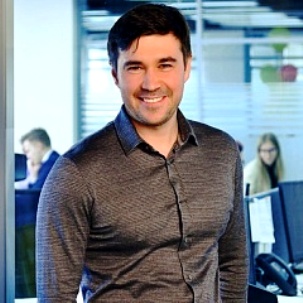By Pavel Rastopshin, Managing Director, ZYFRA
The Russia-Africa summit and economic forum was held on 23-24 October in Sochi. In the 21st century, before conducting such meetings, it is necessary to ask two questions: nowadays, who is the driver of relations between countries, corporations or small companies, and what is the role of the state in facilitating the development of such cooperation?
More and more technology on the cutting edge of science is being developed, not in major corporations but in small companies. This is a recent trend, but it looks like the future of innovation.
There are several reasons for this. In large companies, technological development is generally complicated by numerous factors: bureaucratic obstacles, complex decision-making procedures and a lack of employee motivation. Corporations are focused on smooth-running processes and familiar technologies – new ideas are often rejected as early as the discussion stage. In other words, at a time of explosive development in science and technology, corporations are not fast enough.
Just a few decades ago, none of this would have been a problem, as hardly anyone other than big business had access to the resources needed to develop new technologies. But now things are different: corporations have competition in the form of startups; knowledge and technologies have become accessible to all, and people have started coming in teams to think up something new. These teams are highly motivated and work very fast. They are willing to accept risks and to work flat out. They have a different way of looking at the technology they are developing – something akin to the way a parent looks at their child. Just as a good caring parent will not hand over their child to an orphanage if, for example, it doesn’t know how to walk or jump properly, so the creators of startups are prepared for difficulties. This gives them an enormous advantage.
Big companies are buying startups
Big companies, of course, are taking advantage of this trend. Instead of doing research and development work exclusively in-house, they are buying startups once the technology has been created. Spending USD 200,000 or USD 2 million to acquire a new team and product is a good bargain.
In this sense, everyone is a winner: big business, small innovation companies and the consumer; science develops more quickly, and new products and services improving our lives appear faster.
Let me illustrate this with a few examples. In the car industry, all the resources are concentrated in the hands of the owners of brands such as Mercedes, BMW and Volvo – they have money and the best engineers and designers. But what is the most famous electric car in the world called? Tesla. This car was created by dozens of small innovative companies, each working on its own technology. They were then all integrated into a large corporation which produced the new electric car.
Future lies with small innovative companies
In Russia too, people understand that the future lies with small innovative companies. We have visited 100 Russian cities and met more than 1,500 startup teams, the vast majority of which propose truly hi-tech solutions. These teams will not only create new jobs and stimulate economic growth but are also fully capable of modernizing large production facilities and organizations.
This trend is occurring in every sector of the economy, from information technology to agriculture and the food industry. Solutions employing artificial intelligence and crypto-technology systems are particularly promising, as they can be applied, for example, in production automation and digitization. There is one exception, however: the pharmaceuticals industry. It takes years or even decades of research, massive investment and a big team to create and test new medicines. As a result, this sphere has traditionally been the preserve of big companies. But in healthcare as a whole, startups are second to none: they are the fastest developers of new technologies that will enable us to take better care of ourselves and live longer and fuller lives.
Africa sees future in technology; Russia /Nigeria digital partnerships could accelerate growth
According to data gathered by the Internet Society (ISOC), the main increase in number of registered Internet users in the world can be attributed to African countries. In Nigeria alone, at this point in time, more than 115 million people (over half the population) are Internet users and according to forecasts, this figure will double by 2023 (taking into consideration the population growth, as well). African authorities emphasize technological development as a priority task. They are opening various technological centres and clusters, allocating grants for local companies and attracting investment.
In 2011, the Yabacon Valley (a local counterpart of Silicon Valley) was opened in Nigeria by the Government for start-ups and young companies. Over just a few years, the ‘valley’ has earned an excellent reputation both among start-ups and investors. Russia and Nigeria could create digital partnerships to work in African countries where Russian companies have not ventured, as well as in the Eurasian Economic Union (EAEU) where Nigerian companies have not yet explored. By consolidating technology and resources, thus jointly promoting and selling our products, we can achieve much more.
Companies from Russia and Nigeria, which offer products in one area and do not compete with each other could propose a comprehensive solution. There are several formats for such work. A product produced by one company may supplement a product produced by another. Or one company which already has clients in a country could sell its partner’s products. Such a work format could be suitable primarily for medium size business which could eventually become one of drivers for trade turnover growth.
Russia and Nigeria could create digital partnerships to work in African countries where Russian companies have not ventured, as well as in the Eurasian Economic Union (EAEU) where Nigerian companies have not yet explored.
Geosteering and other modern ‘smart drilling’ software systems can increase oil well productivity by up to 30%and reduce construction times by half, all while mitigating production and process risks. Modular software packages are designed to provide comprehensive engineering support for directional and horizontal drilling by ensuring optimal positioning of the well bore within the target horizon. The system determines the well’s stratigraphic position while drilling and forecasts changes in the structure formation. The economic impact of drilling with this software could be as much as $1.5 million per year in a single well.
Another solution is an electrical submersible pump (ESP) software unit, designed to enhance the efficiency of oil extraction by boosting oil well production rates by 1.5% without any additional capital investment. It is equipped with artificial intelligence to provide recommendations based on historical Big Data analysis. The unit recommends a mode of well operation that will ensure maximum oil flow rate for a certain period of time and provides for stable operation during that period by analyzing current frequency, gauged oil flow rate, periods of intermittent pump operation and other operating parameters.
Russia has accumulated extensive experience in implementing digital solutions for oil and gas, as well as in the mining industry. This experience could allow enterprises on the African continent to speed up digital transformation and allow Russian and Nigerian companies to implement pilot projects in the field of innovation, whose development will give impetus to all trade and economic cooperation.

































